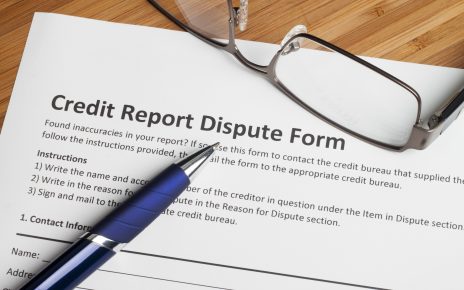When you’re going over your credit file, you may see negative items reported from AFNI. It’s not uncommon for people to have never heard of AFNI before viewing their credit reports. And just as importantly, AFNI may never have actually heard of you.
Who is AFNI?
AFNI Collections, Inc. is located in Bloomington, Illinois. If you do a web search for them, you might get to their business page, but more than likely, you’re going to reach a consumer complaint or anti scam website.
Why is AFNI trying to get money from me?
While the collection attempts may seem personal, in many cases they are anything but. AFNI Collections, Inc., is well-known for attempting to collect on debts that are 10 years old and even older. This practice led to a great many complaints when they started to send out notices for charge-offs from Verizon and Cingular. In fact, AFNI attempted to collect from people who’d never even had accounts with either company.
Why the mix-up? AFNI, like many third-party debt collectors, buys old debts for pennies on the dollar and then tries to get the entire amount from the “debtor”. Almost always, the statute of limitations has run out on these debts, meaning that AFNI has to resort to strong arm collection tactics in the hope of intimidating consumers to pay.
Additionally, when the owner of the debt cannot be verified, they have been known to go after individuals who may have similar names, without verifying the debt. AFNI operates its debt collection practices across the entire USA and possibly Canada as well. New York and Miami both have filed class action suits against AFNI Collections, Inc. for fraud and threatening letters and shady collection tactics.
According to Verzion’s Fraud Investigation Department, AFNI probably is using skip tracing – looking up people with the same name to see if they can find a target to send their dun letters. Unfortunately, there have been many cases where the individual contacted about the debt was not the right person. Rather than admitting the mistake, AFNI continued to pursue collection activity. AFNI is also known for trying to collect on debts that were paid off, and there are several cases on their complaint record about reporting loans and debts that never actually existed to the three credit report bureaus loans. Essentially, supplying entirely false information.
In 2007, AFNI was sued when it broke federal law going after people for old Verizon bills. Some of the recipients of the collection letters never even had a Verizon account – yet some paid anyway, because they were afraid of the effect it would have on their credit. This kind of intimidation is exactly why AFNI continues these unscrupulous practices — it’s effectively free money for them.
They also have been on record as adding a collection fee — a hefty one — in addition to the debt owed. While this is legal for your original creditor to do, third party debt collectors cannot add in fees unless the original agreement with the creditor specifically allows it.
How to Deal with AFNI Safely
While you can typically settle things with creditors over the phone and get follow-up information in writing before you act, you should avoid dealing with AFNI over the phone if at all possible, given their reputation.
According to reports, they will attempt to track your phone number back and harass you once they have it. Additionally, if you call them they will offer to send a “Fraud/Dispute Resolution” package, which will take 2 weeks to get to you.
In this kit, AFNI asks copies of your driver’s license and social security card, proof of citizenship, proof of residence like a bank statement, tax document or utility bill, and any copies of police reports or such involving ID theft. They also ask for copies of anything else you think they might need to help solve your case. More often than not, people who submit the requested information find that AFNI uses it to intensify their collection attempts.
The best way to deal with AFNI is to use the postal service. Always contact them via certified mail and keep your proof of receipt. Do not pay them anything until you verify you actually owe a debt — they are notorious for pulling old debts up and attaching them to similar names because they cannot find the original debt’s owner, and you don’t want to pay a debt that isn’t even yours.
Finally – get your credit reports and go over them to track down inaccurate AFNI listings and dispute them. You do not need to do so with AFNI itself — you can file the report directly with the credit bureau or get the help of a credit repair agency to handle the dispute on your behalf.
If AFNI is harassing you over a debt you don’t owe, you can also contact the DCA (Department of Consumer Affairs) and Attorney General in your state, and the FTC (Federal Trades Commission.)




